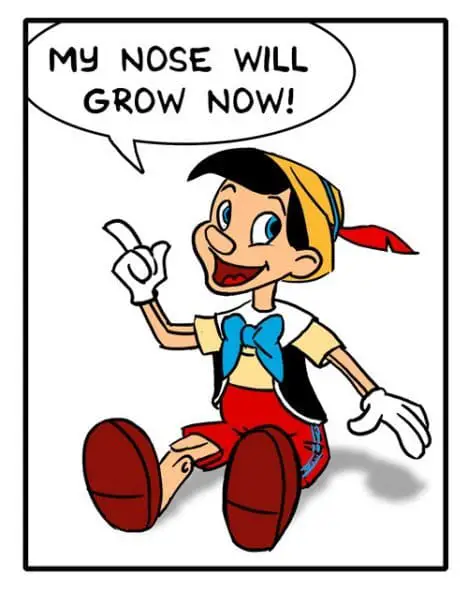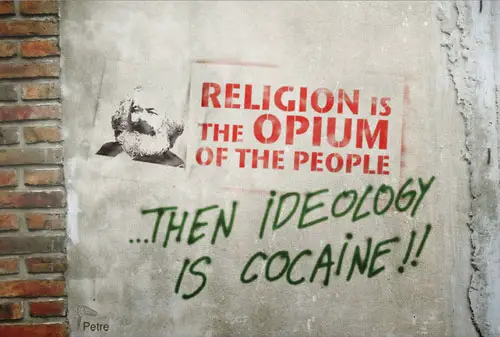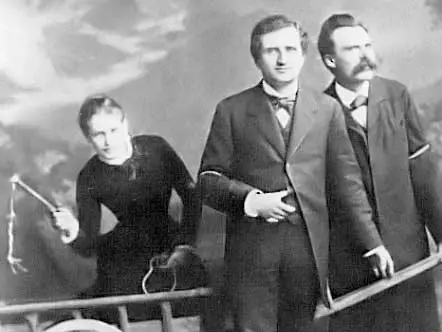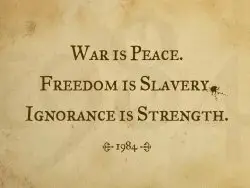Descartes’ dream paradox


Descartes’ dream paradox
Descartes, viewed in history of philosophy as the founder of modern philosophy, starts his Meditations with a paradox that has beguiled philosophers since. In very simplistic terms, Descartes points towards the doubts we should have from occurrences we have perceived through our sense. Because our senses can deceive us, we should try to find something else that may substitute for our understanding (knowledge):
All that I have, up to this moment, accepted as possessed of the highest truth and certainty, I received either from or through the senses. I observed, however, that these sometimes misled us; and it is the part of prudence not to place absolute confidence in that by which we have even once been deceived. (Descartes, Meditations of First Philosophy, Meditation I (pdf), or buy it from [amazon asin=0872201929&text=Amazon]).
In this, Descartes follows the long-standing tradition after Plato (Socrates), discussed in his Phaedo (online | [amazon text=Amazon&asin=0915144182]) and Meno (online | [amazon text=Amazon&asin=1619493780]). The remarkable change is in what follows:
Though this be true, I must nevertheless here consider that I am a man, and that, consequently, I am in the habit of sleeping, and representing to myself in dreams those same things, or even sometimes others less probable, which the insane think are presented to them in their waking moments. How often have I dreamt that I was in these familiar circumstances, that I was dressed, and occupied this place by the fire, when I was lying undressed in bed? At the present moment, however, I certainly look upon this paper with eyes wide awake; the head which I now move is not asleep; I extend this hand consciously and with express purpose, and I perceive it; the occurrences in sleep are not so distinct as all this. But I cannot forget that, at other times I have been deceived in sleep by similar illusions; and, attentively considering those cases, I perceive so clearly that there exist no certain marks by which the state of waking can ever be distinguished from sleep, that I feel greatly astonished; and in amazement I almost persuade myself that I am now dreaming.
Let us disregard Descartes’ fondness of staying in bed for long periods of time after waking up. The challenge that Descartes sets ahead of us the following paradox:
You know that you are at this very moment reading from the screen in front of you. If you were blind, you could still somehow guess that there is a screen in front of you (let us also disregard the point that there would be no need for that screen). However, this guessing does not amount to knowledge. You also need to believe that you are right, and you need to be justified in your belief that you are right. But you will only be justified in this belief that you are reading from the screen, only if your perceptions (and not guesses) is that of a screen and letters on it. In other words, that you know, and not guess, that you are perceiving these.
So far, there is no problem.
The problem Descartes imagines here is that when you are dreaming, you may have exact same perceptions. You may be perceiving that you are reading this from a screen in front of you, but if fact you are lying in bed (and there is no screen with letters on it in front of you). So in both cases, your perception is that of a screen in front of you – or more to the point, you cannot tell on the basis of your experience (current and historical), whether you are merely dreaming about the reading this, or in fact reading this. And therefore you cannot know whether there is a screen in front of you from which you read, but can only guess that.
Descartes’ dream paradox points to the inconsistency between our sense perception and our knowledge that follows from it. The deception is taken quite far by him (and is not resolved adequately, one may add). The paradox we are facing is quite sensible. There are various possible solutions: some scholars have proposed the possibility of a test – the rebuttal would be that such a test can also be dreamt about; or that one’s experiences are longer than dreams, dreams are fuzzy, etc. – again, same rebuttal, you could dream that too; or even with scientific methods, measuring the responses of the brain while dreaming, etc. – again, same rebuttal.
What is the solution?
Well, there is none. But there are two things one ought to keep in mind:
1. Stroud has an interesting parallel about this, (buy it from [amazon asin=0198247613&text=Amazon]):
We would be in the position of someone waking up to find himself locked in a room full of television sets and trying to find out what is going on in the world outside. For all he can know whatever is producing the patterns he can see on the screens in front of him might be something other than well-functioning cameras directed on to the passing show outside the room. The victim might switch on more of the sets in the room to try to get more information, and he might find that some of the sets show events exactly similar or coherently related to those already visible on the screens he can see. But all those pictures will be no help to him without some independent information, some knowledge which does not come to him from the pictures themselves, about how the pictures he does see before him are connected with what is going on outside the room . . . It is natural and perhaps always advisable for a prisoner to try to make the best of the restricted life behind bars. But however much more bearable it makes the prospect of life-imprisonment, it should not lead him to deny the greater desirability, let alone the existence, of life outside (Stroud, The Significance of Philosophical Scepticism, The problem of the external world, p. 33-34).
2. This brings us to a moral/political point: the dual world does not help us within the current state of affairs. This only applies to things of leisure; what if we are equally reluctant of thinking about the real world when it comes to matters of state – wars, famine, natural disasters, etc. These things may be equally removed from our senses, they happen in another world, so to speak. Quite strictly, it could be argued that we factually separate them into different worlds: i.e. first, second and third world countries. And we could simply accept them for what they are – something happening only in our thoughts, through some medium like television. The question is not so much of living with guilt over these things, or to feel some pleasure from helping out by giving a donation through some relief help telephone line.In other words, that there are no solutions does not mean that we should not keep trying to find them. It may seem trivial to have the endless regress to ‘real’ knowledge of things. We could, after all, settle for a representation of the world, rather than the real world. To some extent, this is even true (and according to Nietzsche, not only true, but there is no real world as such, there is only a world of representation). But it ultimately depends on what type of world you are willing to live in.
And then comes this guy to mess with your mind, so go figure:
https://www.youtube.com/watch?v=k-0VMnFmnL0
Read my previous post on solipsism here.
Sign up for Paradox of the Day mailing list and please visit our Patreon support page.









1 Response
[…] for instance). So what is Agrippa’s paradox? In essence, the paradox is very similar to Descartes dream paradox, but there are some major differences. Much like Descartes, Agrippa also questions our possibility […]